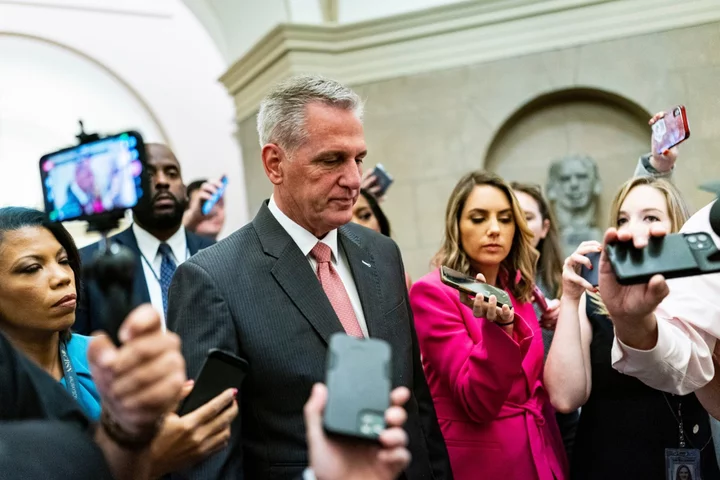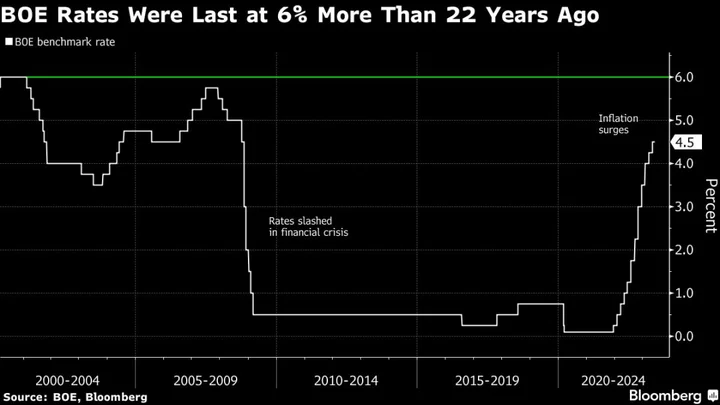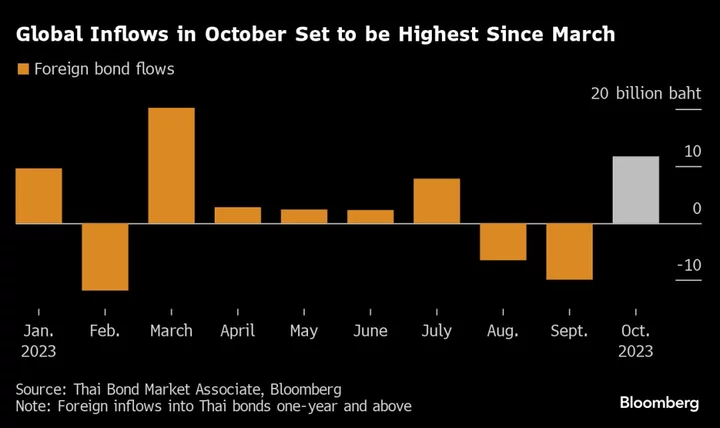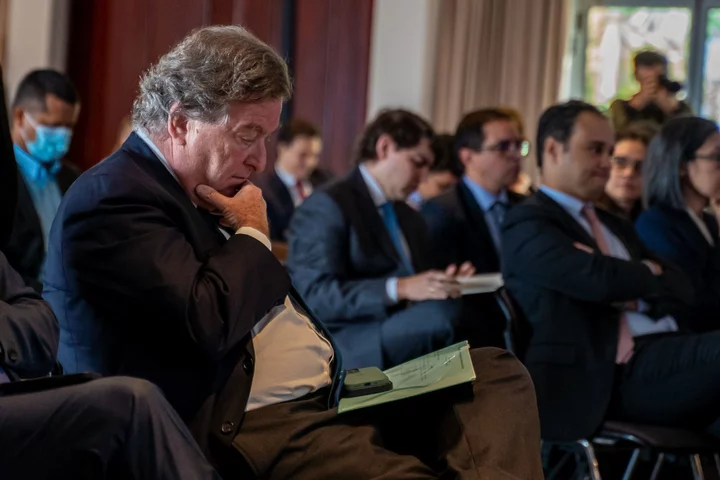House Speaker Kevin McCarthy said talks on the debt ceiling resumed Friday, with negotiations stretching into the final days before the US risks defaulting.
“I thought we made progress yesterday. I want to make progress again today,” McCarthy told reporters as he entered the Capitol after a morning bike ride with top negotiator Representative Garret Graves.
McCarthy, who noted he hasn’t spoken with President Joe Biden in the last 24 hours, has signaled over the last several days that a deal is slowly coming together. Even so, Congress risks not passing a final deal before June 1 — the date by which Treasury Secretary Janet Yellen has said the US could start running out of cash to pay its bills.
With less than a week to go and at least one Republican senator threatening to tie up any bill with procedural hurdles that would take days to resolve, lawmakers are exploring other options. One such move would be a short-term measure that would allow Treasury to issue enough debt to cover a few days of payment obligations while a deal works through the legislative process, a Republican aide said on Friday.
The Capitol complex is nearly empty with most lawmakers gone ahead of a long holiday weekend. Negotiators have been asked to keep working until they reach a deal.
The two sides have narrowed differences in talks over recent days, people familiar with the discussions said, though the details agreed to are tentative and a final accord is still not in hand.
The emerging deal, which is not yet finalized, would raise the debt limit and cap federal spending for two years, according to people familiar with the matter. Also, defense spending would be permitted to rise 3% next year in line with Biden’s budget request.
The benchmark S&P 500 stock index was up more than 1% late Friday morning as traders weighed the reports of an emerging deal against strong economic data pointing toward another Federal Reserve interest-rate increase. Yields on Treasury bills maturing in early June tumbled, a sign investors are regaining confidence in on-time repayment during the window when a US default would be likely without a deal.
Deputy Treasury Secretary Wally Adeyemo warned Friday that payments to Social Security beneficiaries, veterans and others would be delayed if there’s a default. But he said he’s gaining some confidence an agreement will be reached.
“We’re making progress and our goal is to make sure that we get a deal because default is unacceptable,” Adeyemo said in an interview on CNN. “The president has committed to making sure that we have good-faith negotiations with the Republicans to reach a deal because the alternative is catastrophic for all Americans.”
The accord would also include a measure to upgrade the nation’s electric grid to accommodate renewable energy, a key climate goal, while speeding permits for pipelines and other fossil fuel projects that the GOP favors, people familiar with the deal said.
The deal would cut $10 billion from an $80 billion budget increase for the Internal Revenue Service that Biden won as part of his Inflation Reduction Act. Republicans have warned of a wave of agents and audits while Democrats said the increase would pay for itself through less tax cheating.
What is taking shape would be far more limited than the opening offer from Republicans, who called for raising the debt ceiling through next March in exchange for 10 years of spending caps. House conservatives were already balking Thursday at the notion of a small deal, with the House Freedom Caucus sending a letter to McCarthy demanding he hold firm.
An adviser to the House Democratic leadership said the White House had not shared any word about agreements on spending caps or IRS funding.
Should a deal be reached soon, Tuesday is emerging as the likely day for a House vote. The Senate would then have to act quickly to send it to Biden’s desk before June 1.
Doing so, however, would require unanimous consent, and Utah Republican Mike Lee has already threatened to drag out the process there. A short-term bill — provided no one objects to that — would buy the Senate time to work through procedural hurdles before passing the fuller deal.
Time is of the essence. June 2 sees a payment due to millions of Social Security beneficiaries, putting pressure on politicians to resolve the impasse.
Fitch Ratings Wednesday placed the AAA credit rating for the US on watch for a potential downgrade. The US lost its AAA grade at S&P Global Ratings during a similar partisan standoff on the debt ceiling in 2011.
--With assistance from Erik Wasson and Jarrell Dillard.
(Updates starting in third paragraph)









